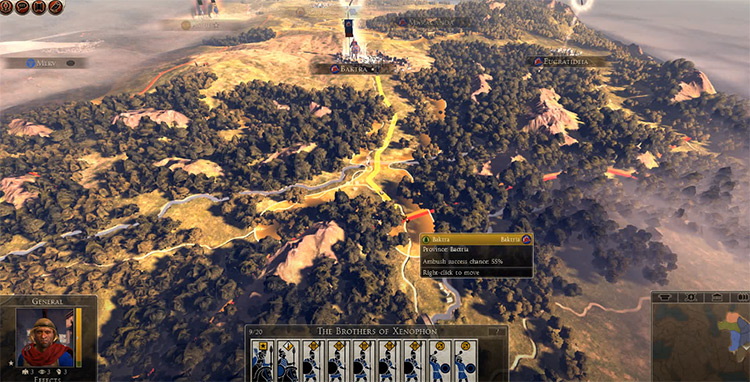

It changes the basic rules of the Total War series in order to do justice to the death of the Roman world. Was the future of Total War just going to be repackaged hits?Īttila takes a look at that trend and veers off in a new direction. Shogun 2 succeeded because it took a couple good ideas from Napoleon Total War and ignored just about everything else the series had tried since Rome. Hidden Weakness: It's about as balanced as CaligulaĪfter Rome 2, it was hard to be optimistic about the future of Total War. This is the series at its very best, its arrival at a goal it started chasing with Shogun and Rome.Ĭlaim to Fame: Tries (and succeeds!) new ideas No other Total War game does a better job combining the fantasy, the history, and the game design. The narrow and mountainous geography of Japan also gives the perennially hapless campaign AI a chance to succeed. The factions are all roughly balanced because they are from the same civilization and share the same level of development. The series' return to Japan and its self-contained strategic context also solves a lot of other problems. Once the battle is joined and the last reserves have been committed, Shogun 2 is a game where you can just zoom to ground-level and watch individual sword duels play out amidst all the lovely carnage. Its look owes more to films like Kurosawa's Ran and Kagemusha than to reality, and gives each battle a vivid, dreamlike quality that's unmatched by any other Total War. And with its Fall of the Samurai expansion, Shogun 2 also turned into the best gunpowder-era Total War.Īll Total War games have had impressive graphics for their time, but Shogun 2 remains beautiful even today. Shogun 2 is where all the series' best ideas have been gathered into one game, and married to a gorgeous aesthetic inspired by its setting. If you could only play one Total War, if you could only have one for your desert island exile, it should be this one. Hidden Flaw: Secretly conservative and unambitious We'll save the worst for last, because if there's one thing that every Total War fan loves, it's an argument over which games were the biggest disappointments.Ĭlaim to Fame: Of all the Total Wars, it's the Total-est. So before the series (temporarily) leaves history behind for the grimdark faux-history of Warhammer fantasy, let's put into order the times that Total War was at its best… and why sometimes its lows were so very low. At its worst, it's a middle-school history textbook as told by Drunk History and filmed by the cast and crew of The Patriot.

Total War at its best is interactive Kurosawa and Kubrick. While the series has been on a linear trajectory in terms of graphics, the quality of the games underlying those vivid battlefield vistas has varied wildly. Each time you take to the battlefield is another do-or-die moment, a possible Hastings or Austerlitz that can open the road to conquest or plunge you into a desperate fight for survival.īut the Total War series has also been defined by massive, abrupt swings in quality. Each decision on the strategic level is a gamble on the immediate future, where "one more turn" isn't just a stepping-stone to a new upgrade, but a perilous step onto thin ice. Your empire rises from nothing, surrounded by enemies who are poised to trample it into the dust. At its best, the Total War series casts a spell over you.


 0 kommentar(er)
0 kommentar(er)
